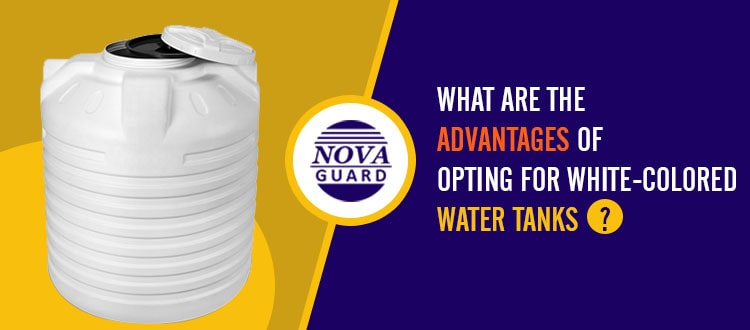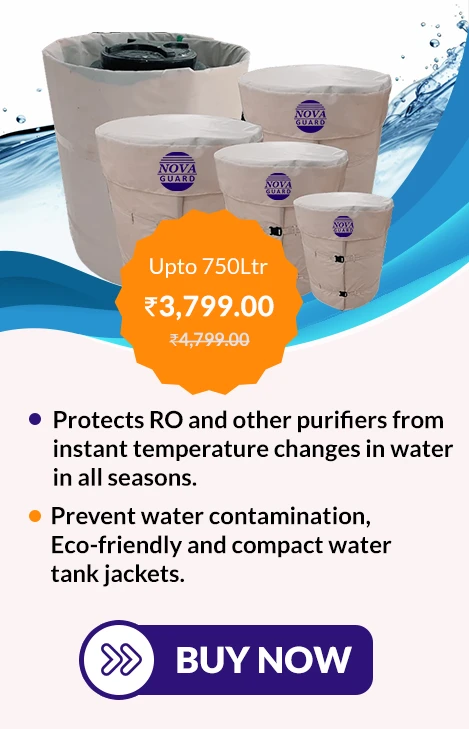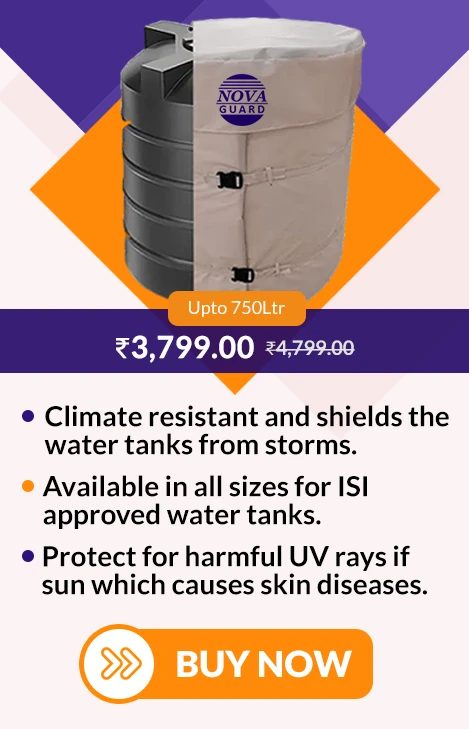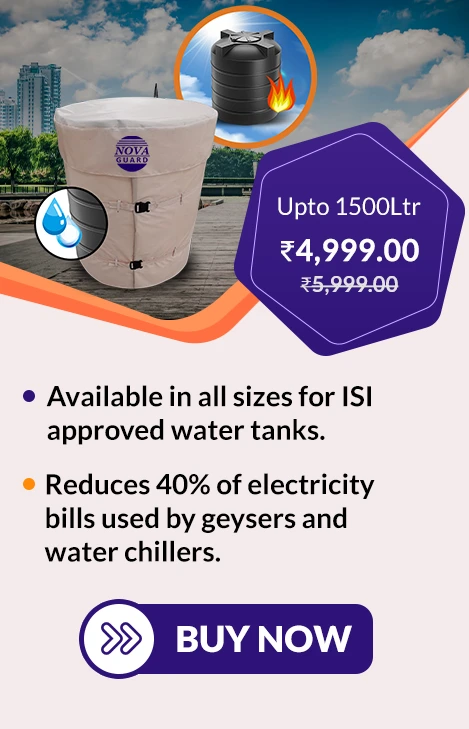
Publish on: Jul 31, 2020 Updated on: Jun 06, 2022
What are the Advantages of Opting for White-colored Water Tanks?
Asking yourself the advantages of opting for a white tank is essential if purity and other aspects concern you. For plastic, other than the color, the material, plastic water tank cover price, and size are also highly significant. The answer to all your questions largely depends on your specific needs. Each color and material has its unique qualities suitable for particular conditions.
For example, a black water tank offers free warm water, which is just what we need to take a bath. Whereas, painting a tank white is one of the most effective ways to keep the water fresh inside. So, let’s take an in-detail look at the advantages of having a white water tank with all other aspects.
Advantages of Opting for White Water Tanks
- Prevents the tank from heating up: It is probably the most significant advantage of having a white water tank. A white water tank doesn’t let the water heat up, and it is incredibly beneficial because nobody wants to have warm tap water in the middle of the day. White is the color you should go for if the water tank is storing water for drinking purposes.
- Has an Aesthetic Look: If you worry about how the roof of your house will look with a water tank, the white color covers it up. A white overhead tank will go pretty well with the design of most homes and companies. It blends well with the environment and doesn’t make your roof look unaesthetic at the same time.
- UV Rays: Most people choose black water tanks because it absorbs more heat than other colors, which reduces the penetration of UV rays to a great extent. Many people also do not go for white water tanks because of this reason. But, the solution for this is to make sure that your tank is UV-stabilized, irrespective of the color.
There are many more advantages, but these are the main benefits of having a white water tank. A white water tank is suitable for industrial and as well as domestic use. You have to make sure that it can withstand harsh environmental conditions. Furthermore, your water tank must be an FDA-compliant material and 100% virgin.
Also Read: Tips to Prevent Your Water Tank From Freezing
How to Select The Perfect Tank on Material Basis?
The material of a tank has a lot to do with your needs. You must wisely decide which would be the perfect fit for you. So, here is a little something about the material and the features.
Plastic Tanks
We also call plastic tanks as ‘poly’ tanks. They are called so because they are made up of polyethylene. It is one of the best tank types, and it has many benefits to offer. A few of the many advantages are:
- Plastic tanks are durable and featherweight at the same time
- Plastic water tank price is lesser than all its alternatives
- Because they are so light, it is quite easy to install them up at a roof
- A poly tank has the color in it; therefore, your water tank will maintain its outer look for a long time
- There is no chance that your tank will corrode because these tanks are non-corrosive
On the other hand, there are chances of your plastic tank to puncture if impacted by a sharp or heavy object. They also degrade with time due to sunlight exposure. The plastic water tank price differs with size. Nonetheless, the advantages outweigh the disadvantages.
Stainless Steel Tanks
If your main aim is to have a durable and robust tank, you must opt for stainless steel tanks. These tanks are a little expensive than other materials, but they have several benefits. You will find many steel water tanks in urban areas, small and large. The following are the benefits of opting for a stainless steel tank.
- Best for large storages as it can hold large amounts of water (30,000-millions of liters in most cases)
- More comfortable to repair than any of its alternatives as all you need to do is weld and patch holes
- No need to spend extra as stainless steel tanks are corrosion resistant
- Stainless steel tanks have a very long lifespan and are fully recyclable
- Easy to install, clean, and maintain
Other than the fact that stainless steel tanks are quite expensive, everything is perfect about it. The high cost speaks for itself.
Concrete Tanks
Concrete tanks are one of the most durable types of water tanks. They, too, are reliable and have a long lifespan, but they must have a rubber/plastic liner. Because if they don’t, they are likely to sweat and develop a salty residue in the long run.
If you want underground storage, you must go for a concrete tank. Concrete tanks don’t do that good above ground as they are not able to support damage. Concrete has lime in it, which is not suitable for a water tank as it may lead to leakage. If you notice, you will see that concrete tanks are mainly used as a part of underground storage for commercial purposes.
Concrete tanks are heavy and tough to repair. Furthermore, installing and removal of it prove to be costly, mainly due to the weight. But, it is not all bad; they also have their benefits.
- Many people prefer concrete tanks because it helps in keeping the water fresh and temperature constant at the same time
- Concrete tanks are one of the cheapest tanks; thus, they are highly affordable
- Although it has lime, concrete tanks save the water from contamination if you maintain it properly
All tanks are likely to degrade the taste of water to a small extent, but not concrete tanks. As there is no plastic or any other material, concrete tanks maintain the taste of water. Thus, you won’t find ever find your it to be bitter or acidic as concrete maintains the pH level.
Also Read: How Can You Keep Your Water Tank Cool During Summer?
Conclusion
So, these were the advantages of opting for white water tanks. Many people choose white water tanks due to all these reasons. As you can see, each material has its pros and cons. In the end, it is all about your requirements. The plastic water tank price and that of concrete tanks are low.






